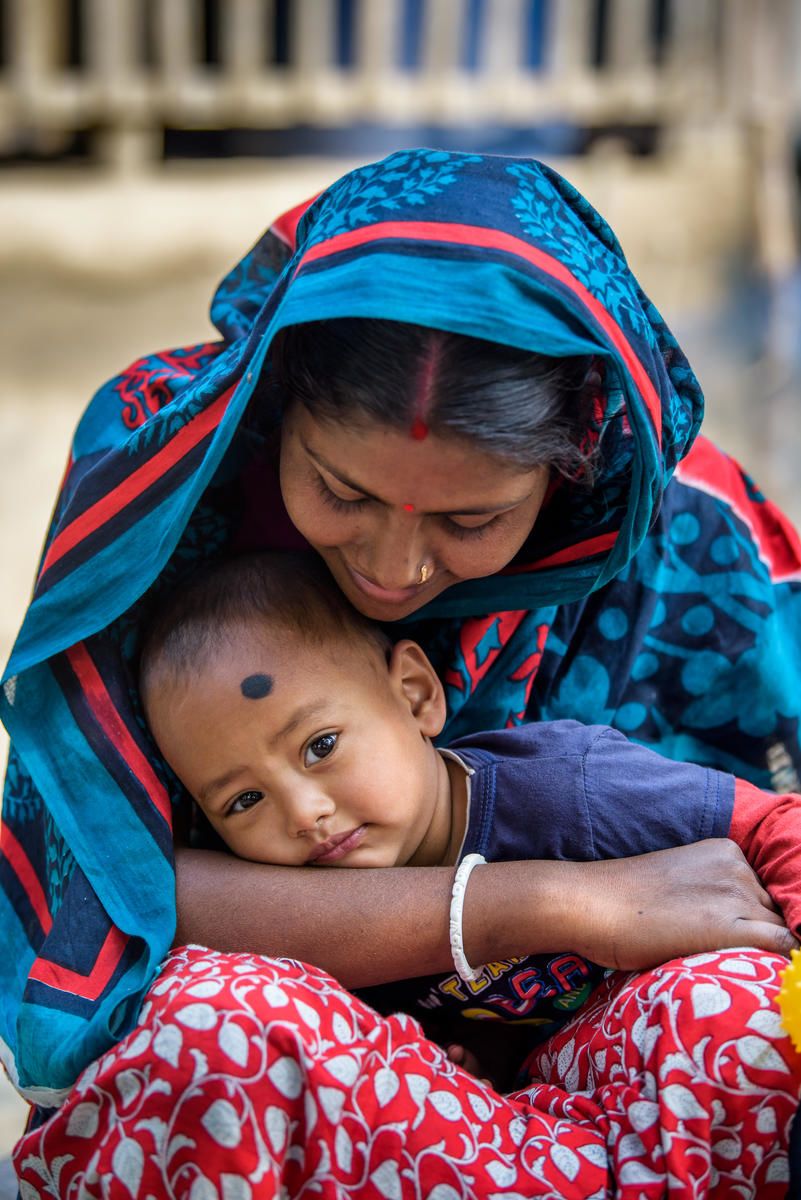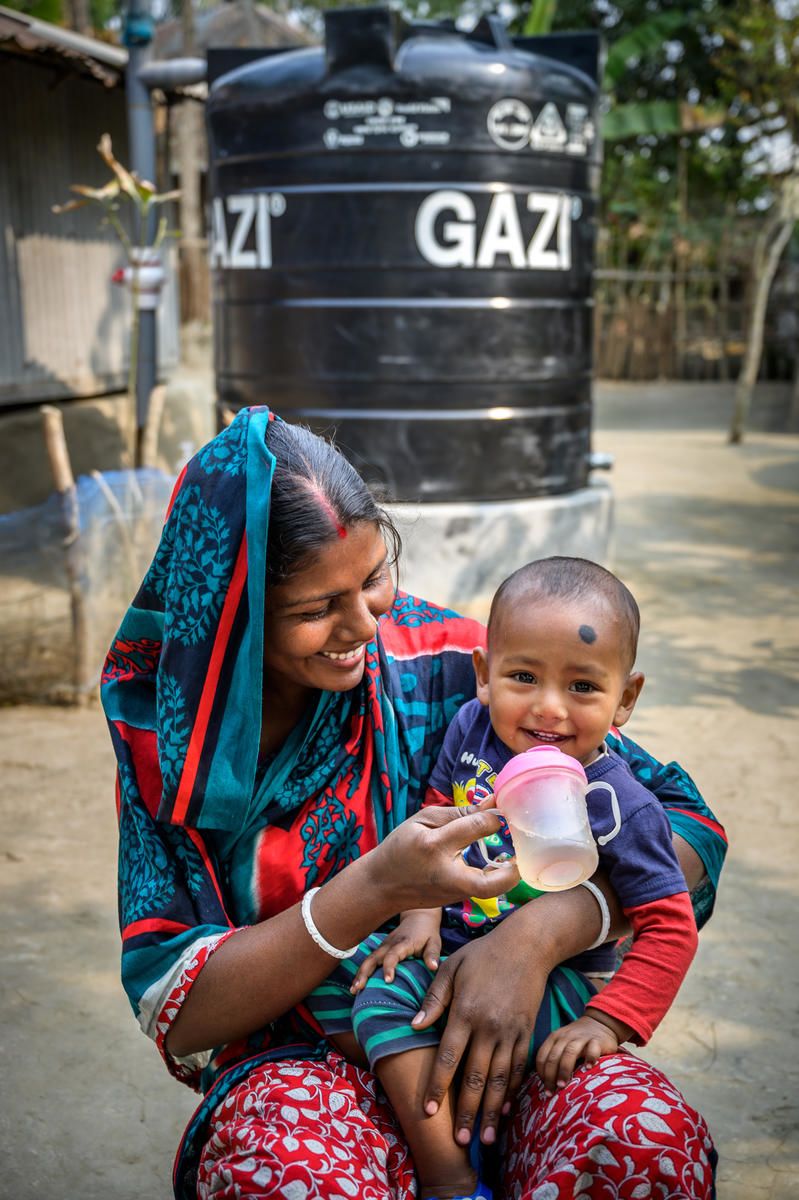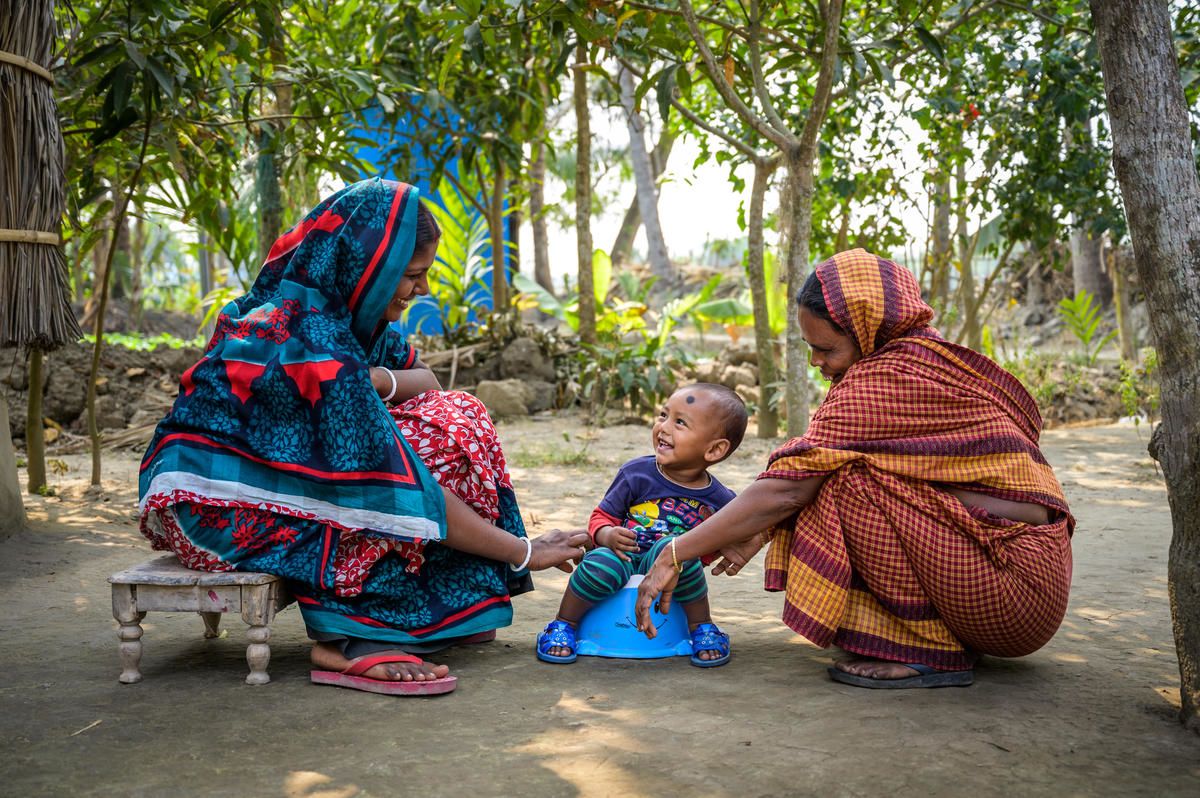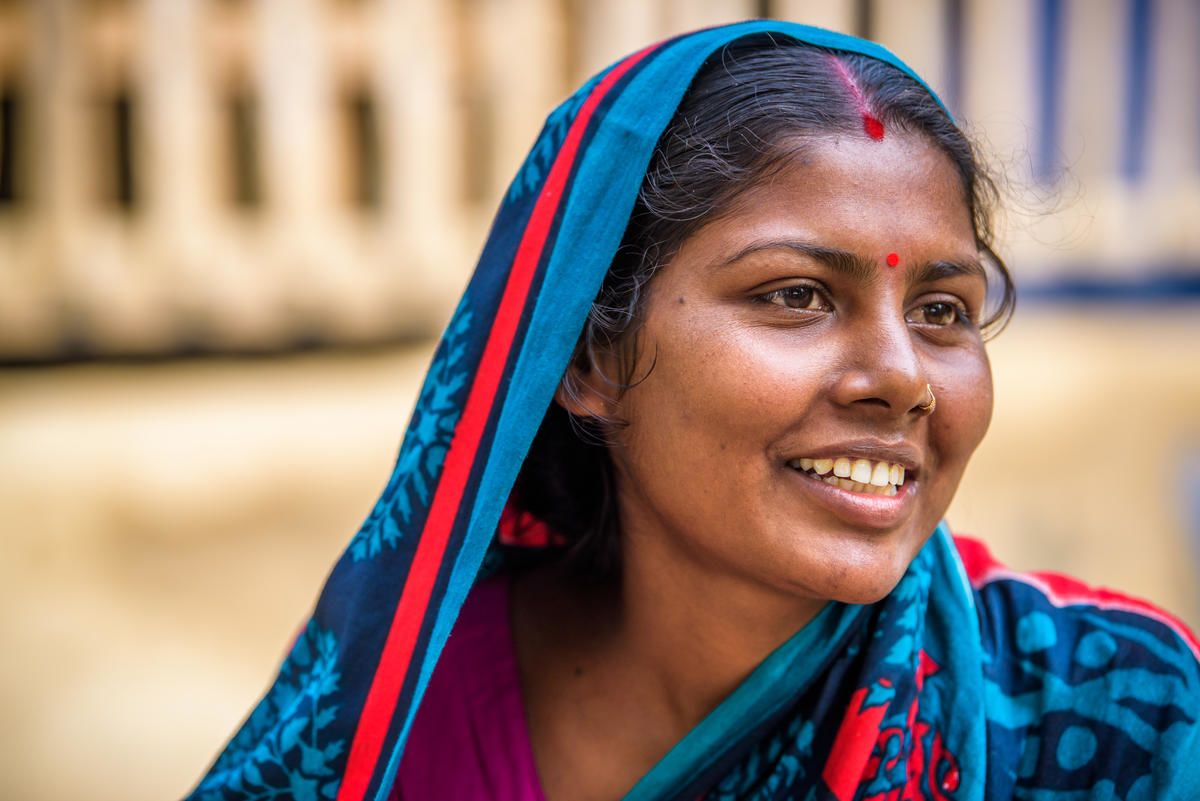Better sanitation and hygiene bring new beginnings
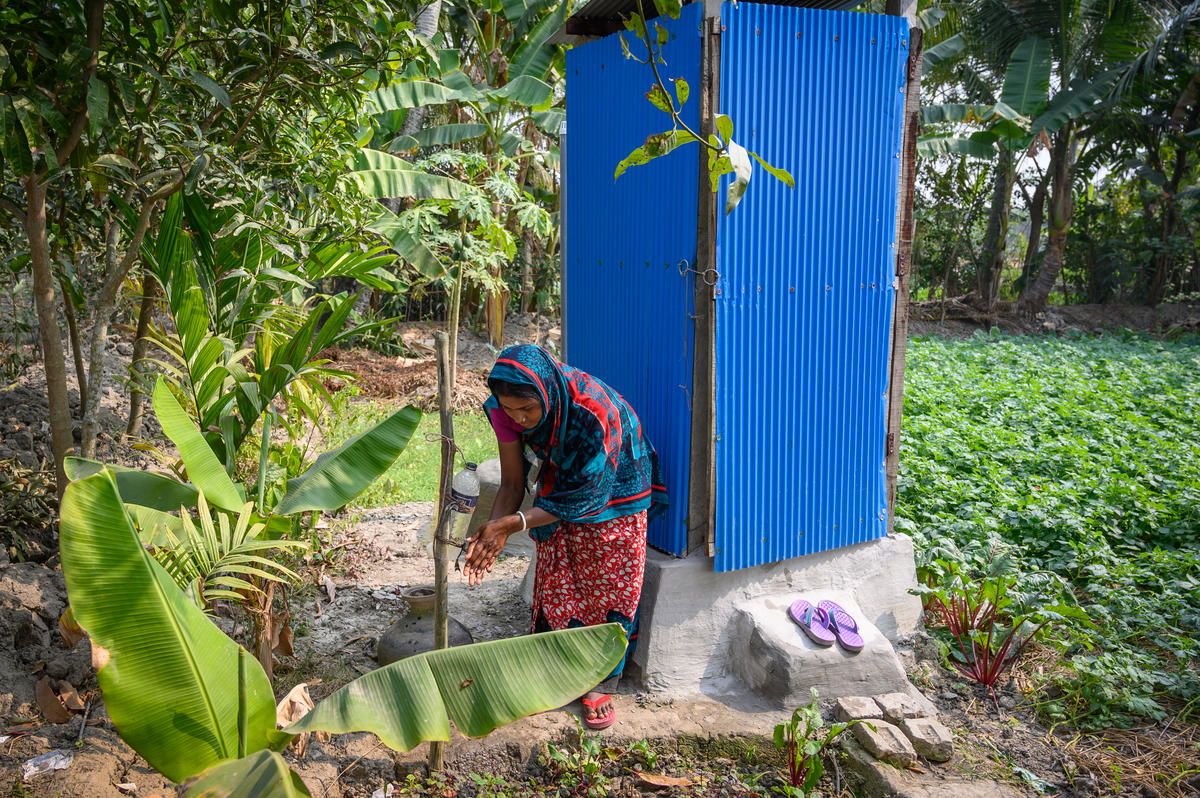
Imagine having to drink your bath water. For the Golder family, and many like them in Khulna District, southwest Bangladesh, drinking the water from the pond where they bathed was one among many challenges they faced daily.
Having to regularly use the pond water gave them water-borne diseases and left them with rashes, peeling skin and stomach problems. Their latrine was unhygienic too.
This is more than unpleasant; it can be fatal. In fact, The World Health Organisation warns that in Bangladesh diarrhoea is the leading cause of death of young children.
Cultural norms in the Golders’ area make the situation even more difficult: about half of all households in the area do not use an improved drinking water source. Less than half treat their drinking water prior to consumption. This is alarming given the high levels of salinity and water contamination due to continued sea-level rise in this exposed southwest coastal belt of Bangladesh.
Worst of all, Sanjoy’s salary for his work as a night guard at a fish hatchery means he struggles to provide enough nutritious food for himself and his family--wife Shamoli and two children: Sutri, 5, and 1-year-old Durjoy. And the more time he misses at work due to sickness, the less income he can provide.
World Vision reaches one new person with clean water every 10 seconds—it’s one of our contributions to the Sustainable Development Goals. Yet, delivering clean water only goes part way to improving children’s lives and health if families are unaware of how to store this water or of proper hygiene and sanitation practices.
Nobo Jatra (“new beginning” in Bengali) is a five-year programme implemented by World Vision and Winrock International, funded by USAID. Its goal is to improve food security, nutrition, and resilience in southwest Bangladesh. A big part of that is ensuring access to and proper management of sanitation and safe water.
As part of the programme, families (including the Golders) received a hygienic latrine, a tank for harvesting rain water, and even a baby potty. Some 2 billion people worldwide do not have adequate access toilets and 673 million still defecate in the open – in fields, bushes, or bodies of water – putting them, and especially children, in danger of deadly diseases like diarrhoea.
The family also learned how to maintain their new latrine and tank, how to store water and how to properly wash their hands to avoid getting sick.
“We are much healthier now ” says mum, Shamoli. “We haven’t had as much diarrhea and dysentery.”
To date, Nobo Jatra has helped 167,200 people gain better access to safe water and 107,000 people access improved sanitation services. And, it is making an incredible difference for children and families in southwest Bangladesh.
Thanks to these improved water and sanitation facilities and hygiene practices, the Golders’ home is much cleaner than before. One of Nobo Jatra’s many WASH (water, sanitation and hygiene) facilitators often stops in to check on the family’s progress and well-being.
“We are thankful,” says Shamoli. “Nobo Jatra changed our life. The biggest gift I got is a healthier child.”
Programmes like this not only change individual families’ lives, but can have a massive impact on the country as a whole. One study by the Water and Sanitation Program wing of the World Bank revealed that Bangladesh incurred a loss of US$3.47bn in 2010 (6.3% of the GDP) due to inadequate sanitation. However, due to behavior change campaigns like Nobo Jatra and the building of many new toilets, it is estimated that only three percent of the population now practice open defecation, down from 34 percent in 1990.
Learn more about the work World Vision is doing in Bangladesh and Nobo Jatra visit here
